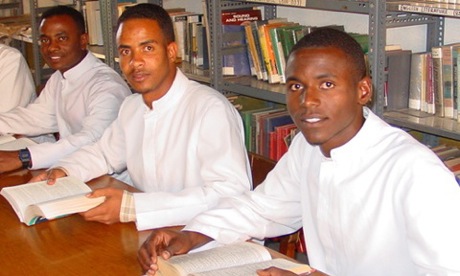Military conscription in Eritrea that forces seminarians and Church workers into long periods of army service is “bleeding the Church in Eritrea to death”, according to a Catholic charity.
The communist government of the north-east African state, which does not set a fixed period for military service, has kept Church workers and seminarians in the army for more than 15 years in some cases.
The charity Aid to the Church in Need said a local source told it the government “exaggerates the danger of war, as a pretext to keep people in military service”.
“In general, military service has led to a situation where there is a shortage of qualified workers in many professions — not just in the Church,” the source added.
While conscription has radically reduced the number of pastoral workers in the Church, its charitable activities have also suffered from state interference because the Church has been forbidden to carry out charitable work.
Seminarians were technically exempt from military service between 2008 and 2011 — but reports received by Aid to the Church in Need suggest many of those conscripted in 2008 were still in training camps.
The government has encouraged all Eritreans to own weapons, even priests and housewives. National service is required for all male and female citizens beginning at age 16.
Over 2000 Christians are among those who have refused military service and are imprisoned for their beliefs.
Thousands avoid military service by fleeing the country each year. Eritrea’s national soccer team recently defected while on a visit to Uganda, in part because of the compulsory military service, Radio France Internationale reported.
Eritrea gained independence from Ethiopia in 1993 after a 30-year conflict.
Of the 5.2 million people in the country, nearly half the population are Christian. Most of these are Orthodox, with Catholics making up just 4 per cent of the population.
Sources:
Image: Catholic News Agency
